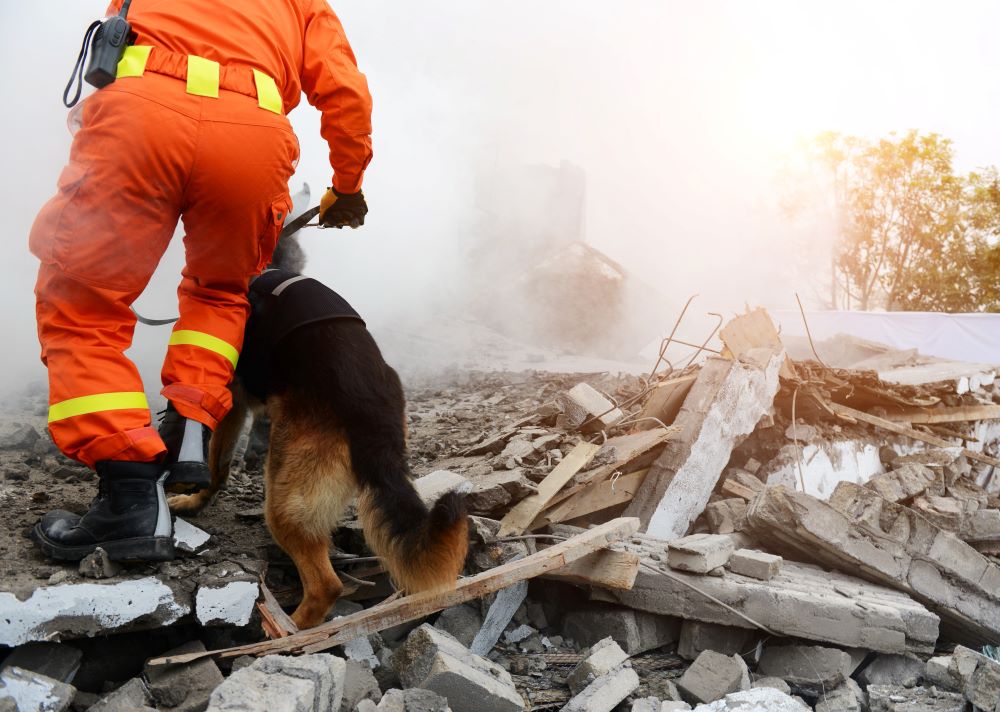According to the Intergovernmental Panel on Climate Change (IPCC), the frequency and severity of humanitarian crises is rising, with the impacts disproportionately affecting the most vulnerable populations. The ability to identify vulnerability to disasters and act early can help minimise casualties. Space technologies are increasingly being used to address this need and have already shown value in supplementing disaster management strategies and damage assessment.
As the recent earthquakes in Turkey and Syria have demonstrated, quick and decisive action is paramount in saving lives. Take, for example, the UNOSAT Emergency Mapping service, which has provided satellite earth observation analysis for humanitarian emergencies including disasters and conflicts since 2003. The UNOSAT service was activated on 6 February 2023, and provides valuable data to United Nations agencies, governments, and relief organisations such as the Red Cross.
The study SatResponse supported by the ESA Business Applications programme demonstrates the added value of holistic information-sharing services, enabled by satellite communication technology. The consortium that developed the service identified the needs of disaster responders, including improved bandwidth, rapid deployment, and reliability of communications. The ‘always-on’, resilient and independent nature of satellite communications over terrestrial infrastructure provided the foundation for this study, which has successfully proven the significant operational benefits of the technology for disaster responders.
Well-informed disaster management strategies — consisting of prevention, mitigation, detection, monitoring, response, and recovery stages — can save lives.
Despite this, a common barrier to successful disaster management is the accessibility of an evidence-base to inform decision-making processes on the ground. This is something that the powerful monitoring capabilities of remote sensing can tackle. Satellite navigation technologies can assist in routing humanitarian response teams to the incident site if vital infrastructure is damaged. Moreover, the speed at which information is exchanged is equally as important, as information can become quickly outdated in a rapidly evolving situation. This can be addressed through the low-latency and ubiquitous connectivity capabilities of satellite communications.
It is not only in the response to naturally occurring disasters that space technology can play a vital role. Many of today’s most challenging humanitarian situations have occurred as a result of conflict and this same technology can help support post-conflict recovery efforts around the globe. The impact of space in this context is increasingly significant.
Rita Rinaldo, Head of Projects and Studies Implementation Division at ESA BASS, explains ‘’space has already demonstrated how it can make a real difference in crises situations, not only in supporting organisations helping people in distress but also in planning recovery efforts. Over the last decade more than two hundred activities around Safety, Security, Resilience and Rapid Response have been implemented through the ESA BASS programme. The increasing risks faced by society, particularly those linked to climate change and humanitarian crises, call for us to intensify these activities by continuing to support companies that have innovative ideas in this domain and partnering with stakeholders operating in the sector.”
For companies who wish to develop services that address humanitarian crises, in terms of disaster management and response, damage assessment or post-conflict recovery efforts, ESA offers financial support through the most recent 'Space in Response to Humanitarian Crises' open call for proposals, and this remains available until 28 April 2023. As well as offering financial support and technical expertise, this call also provides teams with the opportunity to work alongside a range of global organisations including the International Organisation for Migration (IOM), the Norwegian Refugee Council (NRC), the United Nations Children's Fund (UNICEF), the Institute for Economics and Peace (IEP) and the United Nations Satellite Centre (UNOSAT).



